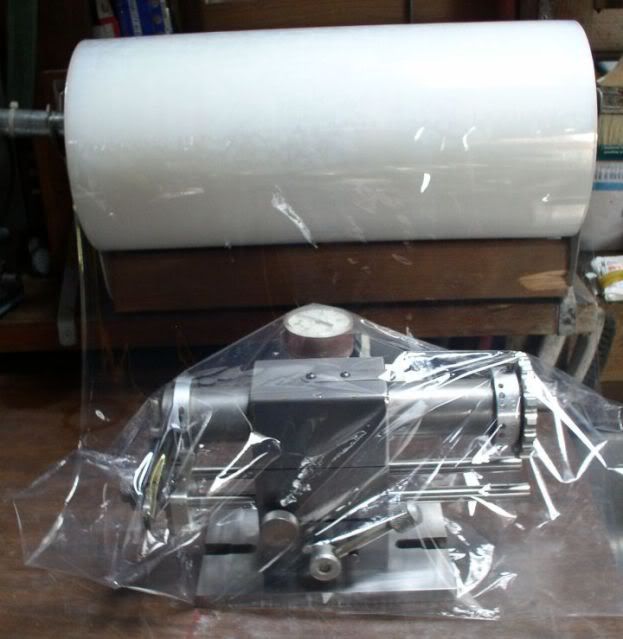Hi all
I'm looking at ways of keeping the dreaded rust at bay on the bits and pieces of equipment that I don't use too often - things like spare chucks, the large rotary table etc. They're stored on the bench under the lathe but as the workshop is a non insulated garage it's pretty cold and draughty and condensation is an issue.
I've got some old bed sheets which I was going to use to cover them, but before I do I just wanted to check that this is a good idea. I can't work out if this will protect them or if the sheets themselves will become damp and actually make the problem worse.
If the sheets get the thumbs up would it be worthwhile to rub oil through the them (ie just a light coating not so they're dripping )
Cheers
Jim
I'm looking at ways of keeping the dreaded rust at bay on the bits and pieces of equipment that I don't use too often - things like spare chucks, the large rotary table etc. They're stored on the bench under the lathe but as the workshop is a non insulated garage it's pretty cold and draughty and condensation is an issue.
I've got some old bed sheets which I was going to use to cover them, but before I do I just wanted to check that this is a good idea. I can't work out if this will protect them or if the sheets themselves will become damp and actually make the problem worse.
If the sheets get the thumbs up would it be worthwhile to rub oil through the them (ie just a light coating not so they're dripping )
Cheers
Jim





